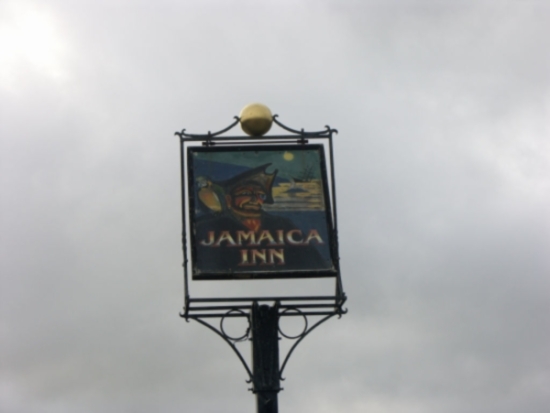Jamaica Inn hotel — Cornwall’s legendary coaching house immortalised in Daphne du Maurier’s novel of the same name — is being sold for £2m. Included in the price is the desk on which the novelist wrote Rebecca and several of her other classics.

Interest in the 400-year-old Bodmin Moor property, which comes with a smuggling museum attached and more than one active ghost, has been “extraordinary” according the Matthew Smith, of Christie & Co’s Exeter office.“The Daphne du Maurier connection has got people very excited and we have had interest from a whole range of prospective buyers, from seasoned hotel-operators to high net-worth individuals.”
Situated in the hamlet of Bolventor and surrounded by moorland, the inn was bought in 1976 for £46,00 by John Watts and his wife, Wendy. It was previuosly owned by the thriller-writer Alistair Maclean. Since then the couple have renovated the 17 bedrooms, renamed after Jamaica Inn characters such as Squire Bassat, and extended and remodelled the restaurant and bar.
Part of the project has also been collecting items and establishing the adjoining smuggling museum. Its prize exhibit is Daphne du Maurier’s writing desk. “We paid £8,000 for it, more than 10 years ago,” explained John Watts, “and people thought we were mad then. Who knows what it would fetch today?”
No writer has stronger connections with Cornwall than du Maurier, who spent most of her life in the county. Published in 1936, Jamaica Inn, was inspired by the Bodmin hostelry which the murderous 19th century “wreckers” used as a base. In 1939 Alfred Hitchcock made a film of the book and later this year the BBC will be getting in on the act with a three-part adaptation.
“A lot of inns associated with smugglers are on the sea, for obvious reasons,” adds Watts. “But we are actually quite a long way inland.” It was Jamaica Inn’s strategic trading position, on the turnpike between Launceston and Bodmin, that accounted for its prominence. The contraband sold by the smugglers included silk and tea as well as tobacco and spirits and at the height of the smuggling trade, half the brandy smuggled into Britain was landed in Cornwall and Devon.
Du Maurier herself described the inn as “a place of tense excitement and claustrophobia”, a sensation which still remains with several resident ghosts including a green-cloaked highwayman. “There is certainly something a bit creepy about the place,” admits Watts. “Guests regularly report experiencing weird sensations: strange noises and lights and rooms suddenly feeling ice-cold even when the radiator is on.”
Jamaica Inn — whose name is said to derive from the local Trelawney landowners, two of whom served as governors of Jamaica — is being sold with six-and-a-half acres of land. Its companion hotel, the White Hart in Okehampton, which is also owned by the Watts, is on the market for £900,000.
Previous Post
Property Price Rises Lead Spanish Recovery